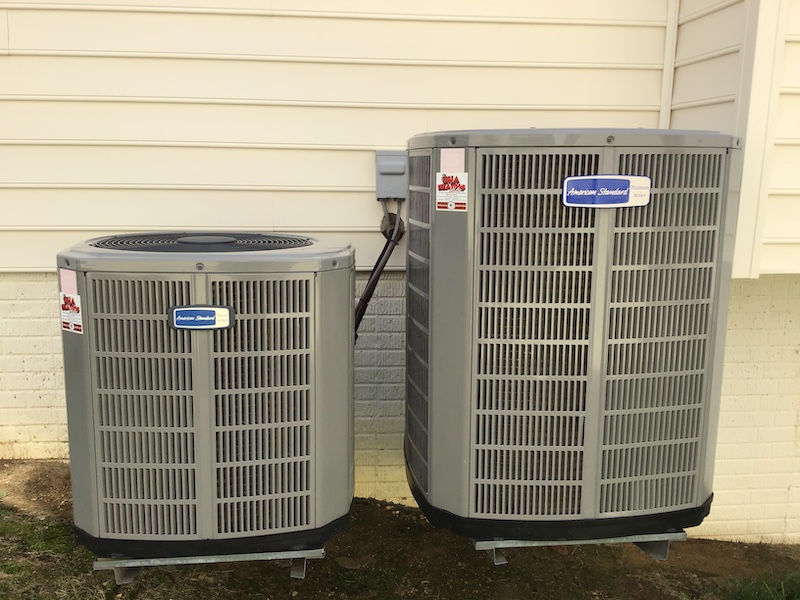Air conditioning is a necessity regardless of where you live. Even in areas with moderate climates all-year-round, A/C units are still essential to keeping homes cool, comfortable, and healthy.
Shopping for an air conditioner can seem like a chore, especially if you don’t know how to choose a new A/C unit. Still, it’s a decision that will ultimately affect the comfort of your home, so you should not take it lightly.
Important Factors to Consider When Buying A New A/C Unit
Are you planning to purchase a new air conditioner?
Here are some important factors to consider.
1. Type of Air Conditioning System
When shopping for a new air conditioner, the first question you need to ask yourself is, “What type of AC best fits my home and intended purpose?”
Air conditioning units come in different shapes, sizes, and prices. Currently, there are four types of systems dominating the residential market, each type useful in its own way.
Central AC Unit
A central air conditioning system distributes cooled air to your home through ductwork. Compared to other A/C options, central air conditioning is the most expensive when it comes to maintenance and upfront costs. However, it is the most efficient for whole-house cooling, especially if you already have ductwork in place.
Ductless Mini Split
A ductless mini-split system is made up of two main components: an outdoor compressor (similar to the ones found in central A/Cs) and an air handling unit that is mounted indoors.
Unlike central A/C units, ductless mini-splits are designed for cooling individual rooms or areas in the house. Most ductless A/C models have a high energy efficiency rating. They are an excellent choice for cooling homes without ductwork, or where adding ductwork isn’t feasible.
Window Unit
Window units are another option for keeping singular rooms cool in homes without ductwork.
While they may not be as efficient as central A/Cs and a little noisy when operating, they’re lighter on the pocket. If you have budget constraints, window units could be the best choice. They are cheaper than most types of A/C and easy to install. If you’re quite the handyman, you can install them without professional help.
Portable Unit
If you want an A/C that you can take from room to room, then a portable unit is your best (and only) bet. These units are almost similar to window-type A/Cs, except that they stand on the floor.
Portable units are suitable for homes with limited space, like apartments and condominiums. They may not be as efficient as the first three options, but they’re quite effective in cooling smaller rooms and spaces.
2. Size
Bigger isn’t always better as far as air conditioning units are concerned. An oversized A/C is not only inefficient, but it may also fail to properly remove humidity from the room and make it feel uncomfortable. On the other hand, a unit that’s too small will end up struggling to keep up with your home’s cooling needs.
However, determining the right tonnage on your own might be a little tricky as this will depend on a variety of factors including the local climate, size of the room, size of your windows, and your home’s orientation to the sun. A trained A/C technician can help you choose the best size for your home.
3. Energy-efficiency
After deciding on the type and size of your air conditioner, it’s time to look at energy efficiency. An A/C unit’s energy efficiency is measured using SEER or seasonal energy efficiency rating.
Federal regulations require A/C units to have a SEER no lower than 14. Some newer A/C models have a SEER of 22 or higher.
The higher the SEER, the lower the energy consumption and operational costs. But while choosing a more efficient unit can save you more money in the long run, a higher SEER usually means more expensive upfront and installation costs.
4. Additional Features
A/C units are not created equal. If you’ve already looked into possible options, then you know that others, especially the latest models, are loaded with features. Going for an air conditioner with a smart thermostat, fan-only option, and or auto-delay switch can help you make cooling your home more convenient while keeping your energy bills low.
Choosing A Contractor
Everybody expects a new air conditioner to work perfectly. Unfortunately, that is not always the case. Many A/C units suffer from efficiency problems and shortened life spans due to improper installation.
Is it time to replace your air conditioner? Choose a reputable HVAC contractor to ensure that you get quality work that will last. The best contractors explain to you the process in an easy-to-understand way and help you make informed, budget-saving decisions.
Buying a new A/C unit can be overwhelming, but if you do your homework, you’ll be able to get the right unit at the right price.











